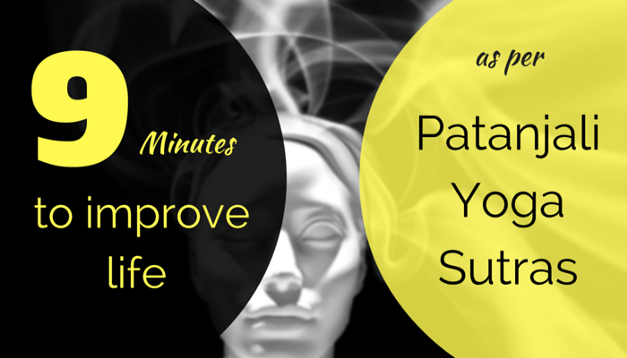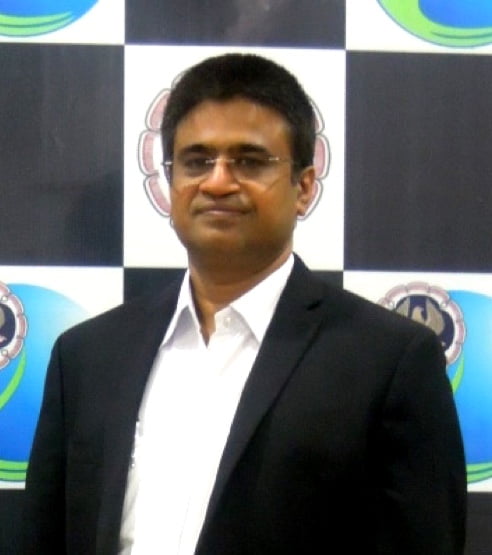9 Minutes to your True Potential
Patanjali Yoga Sutras emphasize on using subconscious mental powers to improve potential and productivity.
Your subconscious mind is always active because it controls all the vital functions inside the body like heartbeat, digestion system and blood circulation. To be alive and breathing we need our subconscious mind to be working.
“Your subconscious mind works continuously, while you are awake, and while you sleep.” — Napoleon Hill
What happens in your subconscious mind, influences the workings of your conscious mind. In other words, it eventually gets reflected in the thoughts that you generate when you are awake and fully conscious.
As Hill further states, “The subconscious mind will translate into its physical equivalent, by the most direct and practical method available.”
The simple step that you need to take is understanding the power of the thoughts in the subconscious mind. You have to propel these thoughts in a direction that will lead you towards improved productivity.
Potent samskaras or deep rooted tendencies are always residing in your subconscious plane, states sutra 4.9 of the Patanjali Yoga Sutras:
Sutra 4.9: जातिदेशकालव्यवहितानामप्यानन्तर्यं स्मृतिसंस्कारयोरेकरूपत्वात्॥
The images created in the mind and the actions that arise out of them condition the mind to form tendencies which manifest when circumstances are favorable.
Here’s a simple routine to get started:
Anulom Vilom Pranayam Before Going to Sleep
Pranayama is a way of attaining focused mind. It is not exactly an effort at concentration. It is a practice of forming an attentive habit, which eventually transforms into a state of expanded awareness.
Regulate your breathing to rid yourself of all the hustle bustle of thoughts created during the day. (The approximate count can be close to a hundred thousand thoughts daily.) Once you are free from that thought turbulence, drive your focus to the situation you want clarity on. Let the other thoughts also keep floating without restrictions. As you start moving into slumber, continue the breathing exercise as long as possible.
Geniuses have been practising this in their own proprietary way from primordial times to modern age. From Rishis in ancient India to Philosophers in Greece to Modern Research Scientists at Harvard, MIT and Yale in present time. But this is not the end and innovation is an ongoing process. You are free to find your own way.
There is no benchmark other than continuous improvement. Modern scientists also endorse the same.
One more Plausible Suggestion
Ask yourself loads of questions related to something that’s bothering you. In Patanjali Yoga Sutras, these instructions to your ‘self’ are mentioned in many places.
Write down those questions and thoughts on a paper if that works better for you. The more detailed the analysis, the better and improved will be your answers.
While you’re sleeping, your subconscious mind starts deliberating and evaluating options, throwing up random connection which is never possible in a conscious state. Since the RAM is totally free, it is able to scan remote areas of the hard disk inside the brain. You will be surprised at the awesome solutions you bring about using this technique.
Even scientists recently have studied the brain activity to show you graphical reports:
Ariel Garten: Know thyself with a Brain Scanner
Waking up to the Creative 9 Minutes
Getting up should be natural after your body, particularly your brain has had the required rest. Brahma Muhurta is mentioned in the Ancient Scriptures as an ideal time for you to wake up. Ayurveda says it occurs roughly one and a half hour before the dawn. That does not mean you can not get up late. Get up when you are fresh and completely rested.
Don’t wake up pandiculating and your arm groping for your handset. Become aware of your body and your surroundings. Let your thoughts start flowing and your creative buds blooming. Be aware of your breath, the breath of life, and how it sustains you. The fresh oxygen spurns your brain into action. Science explains it this way:
TED talk by prominent Oregon Health and Science University Professor Jeffrey Iliff on How Brain gets Cleaned up During Sleep:
Being productive can be tricky when all the thoughts are running around. You can overcome this easily when you have just got off bed. In that moment, you have nothing on your mind. Your subconscious has been loosely mind-wandering while you slept, making contextual and temporal connections. Creativity, after all, is making connections between different learnings that you have imbibed from multitude of sources till now. Making use of them is possible using this technique.
In your brain, thoughts keep flowing without distraction of any incoming notification or messages received. You can continue your thought-dumps for few minutes and rather than focusing on input (like most people who check their notifications) your concentration is on output. This is how you tap into his higher realms of clarity, learning, and creativity as mentioned in the Sutras.
A day well begun will be highly productive. Many of your problems with no solution yesterday, will be surprisingly solved. Putting your solutions down in a proper format will set you up for superlative performance during the day.
Taking example from my own experience, I regularly perform this and write down what I truly wish in my life. I would like to share with you a short extract from this exercise:
“I want to make my company a great place for people to enjoy working. I want to help my employees to achieve better satisfaction in life and uplift them to be happy and enjoy life to the fullest.”
Besides, I often get ideas for articles I’m going to write while doing these thought-dumps. I get ideas about how I can be a better husband and a better father to my two children. I get clarity about the goals I believe I should be pursuing. I get insights about people I need to connect with, or how I can improve my current relationships.
To be sure, you’ll need to practice this skill. It may take several attempts before you become proficient. But with consistency, you can become fluent at achieving creative and intuitive bursts.
Conclusion:
“A man cannot directly choose his circumstances, but he can choose his thoughts, and so indirectly, yet surely, shape his circumstances.” — James Allen
Your thoughts are the blueprint of the life you are constructing. When you work on channelizing your thoughts — both consciously and subconsciously, you are building the circumstances yourself that make possible the achievement of even the most difficult goals.
From above, it can be fairly concluded that you are the designer of your destiny. This simple routine will help you crystallize where you want to go, and how you will get there.

